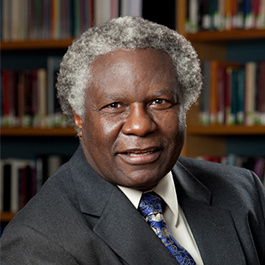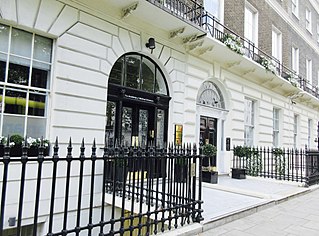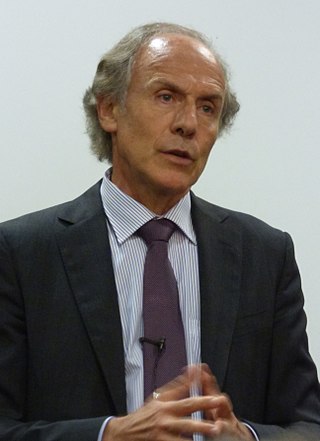
The British Academy for the Promotion of Historical, Philosophical and Philological Studies is the United Kingdom's national academy for the humanities and the social sciences. It was established in 1902 and received its royal charter in the same year. It is now a fellowship of more than 1,000 leading scholars spanning all disciplines across the humanities and social sciences and a funding body for research projects across the United Kingdom. The academy is a self-governing and independent registered charity, based at 10–11 Carlton House Terrace in London.

Raghunath Anant Mashelkar,, also known as Ramesh Mashelkar, is an Indian Chemical Engineer, born in a village named Marcel in Goa and brought up in Maharashtra.

The Australian Academy of Science was founded in 1954 by a group of distinguished Australians, including Australian Fellows of the Royal Society of London. The first president was Sir Mark Oliphant. The academy is modelled after the Royal Society and operates under a Royal charter; as such, it is an independent body, but it has government endorsement. The Academy Secretariat is in Canberra, at the Shine Dome.

Calestous Juma was a Kenyan scientist and academic, specializing in sustainable development. He was named one of the most influential 100 Africans in 2012, 2013 and 2014 by the New African magazine. He was Professor of the Practice of International Development and Faculty Chair of the Innovation for Economic Development Executive Program at Harvard Kennedy School. Juma was Director of the School's Science, Technology and Globalization Project at Harvard Kennedy School as well as the Agricultural Innovation in Africa Project funded by the Bill and Melinda Gates Foundation. His last book, Innovation and Its Enemies: Why People Resist New Technologies, was published by Oxford University Press in 2016.

The Academy of Medical Sciences is an organisation established in the UK in 1998. It is one of the four UK National Academies, the others being the British Academy, the Royal Academy of Engineering and the Royal Society.

Ismail Serageldin, Founding Director of the Bibliotheca Alexandrina (BA), the new Library of Alexandria, inaugurated in 2002, is currently, Emeritus Librarian, and member of the Board of Trustees of the Library of Alexandria. He serves as Chair or Member of a number of advisory committees for academic, research, scientific and international institutions and civil society efforts, and serves on the Advisory Committee of the World Social Science Report for 2013 and 2016, as well as the UNESCO-supported World Water Scenarios (2013) and the executive council of the Encyclopedia of Life (2010) and Chairs the Executive Council of the World Digital Library (2010). He also co-chaired the African Union's high level panel for Biotechnology (2006) and again for Science, Technology and Innovation (STI) in 2012–2013, and was a member of the ICANN Panel for the review of the internet future (2013).

Alan George Lewers Shaw was an Australian historian and author of several text books and historiographies on Australian and Victorian history. He taught at the University of Melbourne and the University of Sydney, and was professor of history at Monash University from 1964 until his retirement in 1981.

Alan Simon Finkel is an Australian neuroscientist, inventor, researcher, entrepreneur, educator, policy advisor, and philanthropist. He was Australia’s Chief Scientist from 2016 to 2020. Prior to his appointment, his career included Chancellor of Monash University, President of the Australian Academy of Technology and Engineering (ATSE), and CEO and founder of Axon Instruments, and CTO for the electric car start-up Better Place Australia.

Annie Antón is an academic and researcher in the fields of computer science, mathematical logic, and bioinformatics.
Fay Gale AO was an Australian cultural geographer and an emeritus professor. She was an advocate of equal opportunity for women and for Aboriginal people.
Don Aitkin AO (1937–2022) was an Australian political scientist, writer, and administrator. Until 2012 he was Chairman of Australia’s National Capital Authority. He served as Vice-Chancellor and President of the University of Canberra from 1991 to 2002, and as Vice-President of the Australian Vice-Chancellors Committee in 1994 and 1995. He played an influential role in the evolution of national policies for research and higher education from the mid-1980s, when he was the Chairman of the Australian Research Grants Committee, a member of the Australian Science and Technology Council, and Chairman of the Board of the Institute of Advanced Studies at the Australian National University. Appointed as the first Chairman of the Australian Research Council in 1988, he established the new body as a national research council of world class; its funding trebled during his term of office. He was made an Officer of the Order of Australia in 1998.

Genevieve Bell is the Vice-Chancellor of the Australian National University and an Australian cultural anthropologist. She is best known for her work at the intersection of cultural practice research and technological development, and for being an industry pioneer of the user experience field. Bell was the inaugural director of the Autonomy, Agency and Assurance Innovation Institute (3Ai), which was co-founded by the Australian National University (ANU) and CSIRO’s Data61, and a Distinguished Professor of the ANU College of Engineering, Computing and Cybernetics. From 2021 to December 2023, she was the inaugural Director of the new ANU School of Cybernetics. She also holds the university's Florence Violet McKenzie Chair, and is the first SRI International Engelbart Distinguished Fellow. Bell is also a Senior Fellow and Vice President at Intel. She is widely published, and holds 13 patents.
Robert B. Gagosian is an American oceanographer. In 2016 he is acting president of the Desert Research Institute in Nevada. Gagosian served as president and CEO of the Consortium for Ocean Leadership in Washington, D.C., from 2007 to 2015, where he is currently president emeritus. Gagosian served as president and director of the Woods Hole Oceanographic Institution (WHOI) from 1994 to 2006, where he is currently president emeritus.

Tan Sri Zakri bin Abdul Hamid has had a distinguished career in science as a researcher, educator, administrator and diplomat.
Vishweshwaraiah Prakash is an Indian structural biologist, food technologist and a former director-general designate of the Council of Scientific and Industrial Research (CSIR). He is a former director of the Central Food Technological Research Institute (CFTRI), Mysore and was involved with the International Union of Food Science and Technology as the chairman of its International Academy during 2008-10. He received the Shanti Swarup Bhatnagar Prize, the highest Indian award in the science and technology category in 1996. The Government of India awarded him the fourth highest civilian honour of the Padma Shri in 2004,
Manohar Lal Munjal is an Indian acoustical engineer, honorary professor, and INSA senior scientist at the Facility for Research in Technical Acoustics (FRITA) of the Indian Institute of Science. He is known for his studies on aeroacoustics and finite wave analysis of exhaust systems. He is an elected fellow of all the three major Indian science academies viz. Indian Academy of Sciences, Indian National Science Academy, National Academy of Sciences, India as well as the Indian National Academy of Engineering. He has published three books viz. Noise and Vibration Control, Acoustics of Ducts and Mufflers With Application to Exhaust and Ventilation System Design, and IUTAM Symposium on Designing for Quietness and has contributed chapters to books edited by himself and others. The Council of Scientific and Industrial Research, the apex agency of the Government of India for scientific research, awarded him the Shanti Swarup Bhatnagar Prize for Science and Technology, one of the highest Indian science awards for his contributions to Engineering Sciences in 1986.
Janice Clare Reid is an Australian academic and medical anthropologist, who has specialised in Aboriginal and refugee health. She was Vice-Chancellor of the University of Western Sydney from 1998 to 2013.
Emma Kowal is an Australian cultural and medical anthropologist, physician and scholar of science and technology studies. She is most well known for her books Trapped in the Gap: Doing Good in Indigenous Australia, and the co-edited volumes of Force, Movement, Intensity: The Newtonian Imagination in the Humanities and Social Sciences, Cryopolitics: Frozen Life in a Melting World.
John Reginald Piggott is an Australian economist. He is the Director of the ARC Centre of Excellence in Population Ageing Research (CEPAR) at the University of New South Wales, Australia, where he is Scientia Professor of Economics. He is a Fellow of the Academy of the Social Sciences in Australia.
The Human Genetics Society of Australasia (HGSA) is a membership organization for individuals in the field of human genetics who primarily practise in the Oceania region. Members typically hold both a qualification in human genetics and work in the field. Membership is drawn from clinical, laboratory and academic specialties. Members include clinical geneticists; genetic counsellors; laboratory scientists ; and academics.










